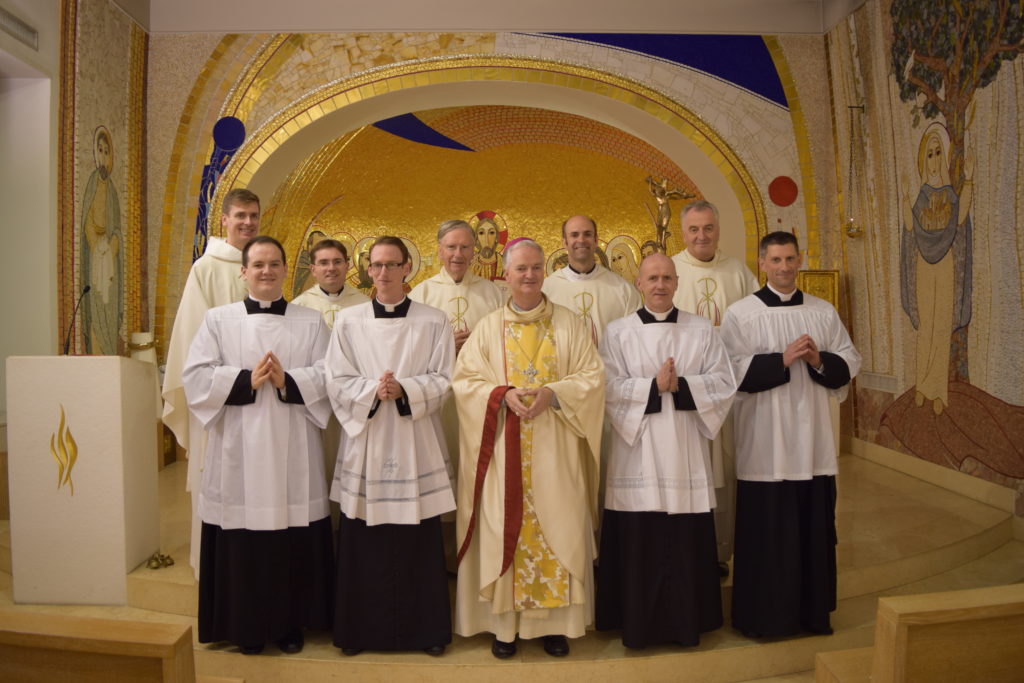Ministry of Acolyte
Posted on 16. Nov, 2016 in Carousel

(Left to right) Front row: Declan McGeehan, Tony Shannon, Bishop Paul Tighe, Seán Mulligan, Anthony Briody. Back row: Fr Paul Finnerty (Vice Rector), Fr Hugh Clifford (Director of Formation), Fr Thomas Norris (Spiritual Director), Fr John Bauer (St John Vianney Seminary, Minnesota Director of Formation), Mons. Ciarán O’Carroll (Rector).
Four seminarians of the Pontifical Irish College, Rome, were instituted as Acolytes by Bishop Paul Tighe, Adjunct Secretary of the Pontifical Council for Culture, at Mass in the College Chapel on 16th November 2016. Those conferred with the Ministry of Acolyte were: Declan McGeehan (Diocese of Derry), Seán Mulligan (Diocese of Clogher), Anthony Briody (Diocese of Raphoe), and Tony Shannon (Diocese of Meath).
The role of an Acolyte is set out in Pope Paul VI’s Motu proprio, ‘Ministeria quaedam’ of 1972:
‘The acolyte is appointed in order to aid the deacon and to minister to the priest. It is his duty therefore to attend to the service of the altar and to assist the deacon and the priest in liturgical celebrations, especially in the celebration of Mass; he is also to distribute communion as a special minister when the ministers spoken of in the Codex Iuris Canonici can. 845 are not available or are prevented by ill health, age, or another pastoral ministry from performing this function, or when the number of communicants is so great that the celebration of Mass would be unduly prolonged. In the same extraordinary circumstances an acolyte may be entrusted with publicly exposing the Blessed Sacrament for adoration by the faithful and afterward replacing it, but not with blessing the people. He may also, to the extent needed, take care of instructing other faithful who on a temporary basis are appointed to assist the priest or deacon in liturgical celebrations by carrying the missal, cross, candles, etc., or by performing other such duties. He will perform these functions more worthily if he participates in the holy Eucharist with increasingly fervent devotion, receives nourishment from it, and deepens his knowledge about it.
As one set aside in a special way for the service of the altar, the acolyte should learn all matters concerning public divine worship and strive to grasp their inner spiritual meaning: in that way he will be able each day to offer himself entirely to God, be an example to all by his gravity and reverence in Church, and have a sincere love for the Mystical Body of Christ, the people of God, especially for the weak and the sick.’
